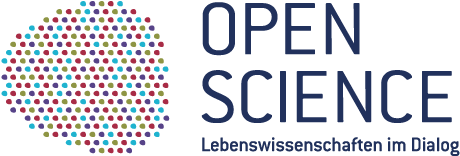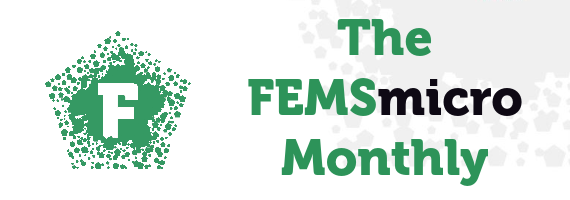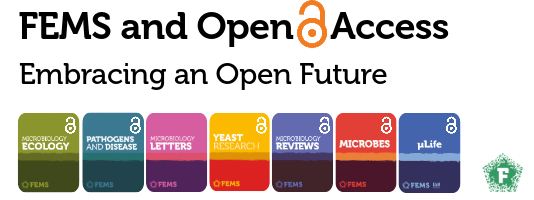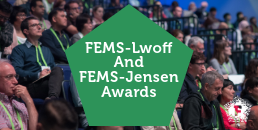The Human Frontiers Science Program has opened its interdisciplinary, international research grants call and is looking for bold, high-risk, high-gain, game-changing applications in out-of-this-world life science. Dare you apply!?
Do you have a bold idea for a project – something you would never dare to write a proposal about as most funding agencies would reject it directly telling you it is “not feasible,” “too high risk,” “you have no preliminary data,” or “it cannot be done by a biologist”? What, if all these points are true of your idea? And – what if you would need to work with a smart physicist, a very skilled chemist, or an inventive modeller? Despite all obstacles you’re sure this is a compelling idea – one that might even change the way we think of biology.
Well, if this is YOU, then take a look at the Human Frontiers Science Program (HFSP): https://www.hfsp.org/
HFSP awards Research Grants to interdisciplinary, international teams (preferably intercontinental) for cutting-edge, basic research in the life sciences and Fellowships to postdoctoral researchers, who either embark on a new field of investigation within the life sciences, or who move from another discipline – physics, chemistry, or engineering – into the life sciences.
The Human Frontiers Science Program asks for exactly the kind of features that cause other funders to shy away from a proposal. We want: bold ideas, high-risk, high-gain, game-changing concepts and researchers who are brave enough to try a new line of research!
HFSP Research Grants
The new call for HFSP Research Grants has just opened with a deadline in March. You need to get into the application system and initiate an application by 19 March 2024, at the latest, and submit the complete Letter of Intent by 28 March 2024. Research Grants are awarded to international and interdisciplinary teams of scientists, who have not collaborated before, but wish to work together to solve a fundamental question in the life sciences. HFSP offers two types of grant awards: Research Grants – Early Career and Research Grants Program.
HFSP Fellowships
The call for HFSP Postdoctoral Fellowships will also open soon with a submission deadline in May. There are two types of Fellowships. Long-Term Fellowships are for applicants with a PhD in the life sciences who want to move to a different country and in a new direction of research. Cross-Disciplinary Fellowships are for applicants who hold a doctoral degree in a non-biological discipline (e.g., physics, chemistry, mathematics, engineering, or computer sciences) and have not worked in the life sciences before.
Highlights of the Program
A recently awarded team developed new methods that allowed them to determine what our ancestors ate millions of years ago just by studying their teeth. Another team brought together material scientists and brain researchers to investigate whether there are similarities between how materials have memory and how our brains remember. And not long ago, a Swedish physicist with a PhD in experimental particle physics received an HFSP Cross-Disciplinary Fellowship to move to the USA and change his field of expertise to neurobiology and work on visual consciousness. Additional successful projects are featured at the HFSP Science Digest and also at and via the HFSP Awardees Database.
Details and Tips on Applications
The HFSP has a two-step selection process: first, Letter of Intent, and if you are successful, then full proposal. You can anticipate the entire review process will take one year for grants and nine months for fellowships. Only those projects with the highest potential to make a difference in the life sciences are awarded.
For Research Grants, of the 700–900 Letters of Intent submitted and evaluated annually about 15% advance to the Full Proposal stage, and 30–40% of Full Proposals are awarded. For Fellowships, the success rate is higher. For both funding schemes the critical step is writing a compelling, convincing Letter of Intent. How do you do that? Here are a few tips.
-
As you write your short description keep in mind that the review committee members are absolutely the top research scientists, have deep experience in cross-disciplinary investigations, and they are visionaries able to easily distinguish between off-the-shelf projects vs. frontier science.
-
Bear in mind that HFSP considers risk as positive, particularly if applicants are aware of the risks involved and have mitigation plans in mind.
-
HFSP wants visionary ideas and reviewers are looking for bold, adventurous concepts.
-
Reviewers not only span the life sciences: from virology and neuroscience to biochemistry and biophysics, but also mathematics, computer science, structural chemistry, and engineering. Thus, most likely, reviewers will NOT be specialists in your specific field, so be sure to explain your idea, including the expectations and methods, as if you were addressing a smart generalist, with broad interests in science.
-
Use simple language, organize your thoughts in a logical and interesting sequence, avoid acronyms, and don’t use hollow phrases, such as “this is absolute frontier science,” or “we are world experts in….” There is no need to overstate because it will be apparent from your selected publications that you are competent. If your idea is truly bold and earth-shaking it will shine all the more expressed in clear language.
-
Start writing your Letter of Intent early, read and rework it, get feedback. Finetune your description until it says precisely what you intend. One should not cite old white men too often, but a colleague of mine often referred to Winston Churchill (or was it Blaise Pascal?!), who was credited with saying, “If I had more time, I would have written a shorter letter.” It is indeed more difficult to write short pieces than long passages. It is also a lot of fun getting the cool idea out of my head and onto paper (or computer file), showing it to friends, and asking whether my writing explains the idea convincingly. HFSP Research Grant teams often tell us how much they worked on their Letter of Intent – and how much they enjoyed doing so. It’s true: the editing and rewriting process helps to develop and shape ideas.
So take a look at the HFSP homepage, read the application guidelines, write up your coolest out-of-the-box idea and see where it leads you! I hope to be reading your application in the near future.

Photo by Hu Chen on Unsplash
























